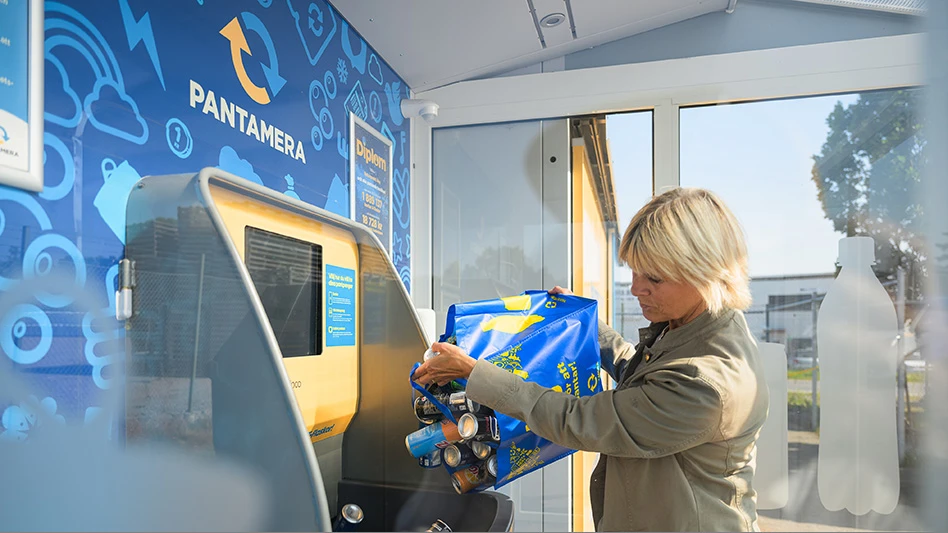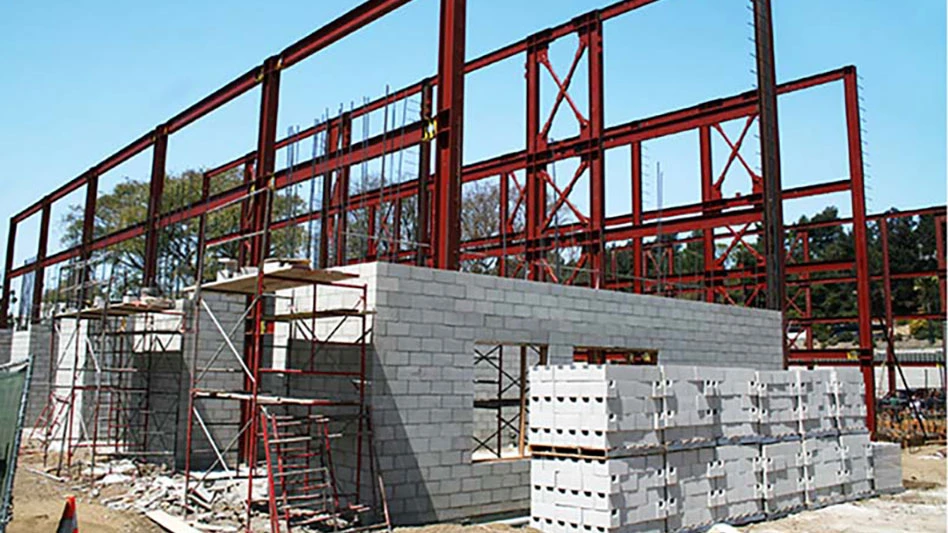
In the mindset of many Americans, recycling has moved from the bastion of ardent environmentalists to one that is almost on a par with flag-waving patriotism. The image that often is shown is of smiling school children surrounded by bottles and cans.
However, the reality is that an actual recycling business, whether it is an enclosed material recovery facility (MRF), a scrap yard with acres of metals or a construction and demolition (C&D) debris facility, is rarely aesthetically attractive.
Many scrap yards have piles of obsolete scrap metal placed in plain view or rising over a fence. Dozens of trucks may come in and out of a yard every day. Heavy equipment is likely used, and often loud noises may emanate from these yards.
While scrap yards perform an essential business, many local communities, whether to gentrify an area or to attract what they consider more promising businesses, are often making it difficult for recyclers to exist.
The tone that greets some of these recyclers is the "not in my back yard" (NIMBY) message that also greets planners who are trying to find suitable locations for prisons, landfills and drug treatment centers.
This is not the company that recyclers feel they deserve to keep, but a scan of recent news items shows that in many minds, the industry is lumped into this same undesirable group of neighbors.
Recycling advocates and many operators are quick to say it doesn’t have to be this way, but changing an industry’s reputation will probably take a concerted effort.
STEP ASIDE, PLEASE. In the past, scrap recyclers benefited from their ability to operate far away from residences, often in industrial or rural areas. However, development trends over the past couple of decades have caused a steady encroachment of residences into commercial sectors. "We are seeing a trend toward redevelopment in industrial areas," says Steve Levetan of Resource Services, Atlanta, a consultant who works with many recycling-related companies.
Over the past several years a slew of companies have experienced tremendous pressure by local communities who are seeking to drive out businesses that may have operated for decades in quiet anonymity. These businesses may be in formerly rural areas that are now surrounded by subdivisions with $600,000 homes, or they may be in older central city neighborhoods where factories have shut down and loft apartments and town homes have moved in.
The case of Aaron Ferer & Sons in Omaha, Neb., offers an example of what happens when a scrap recycler is considered to be in the way of urban redevelopment.
The company had been in operation for more than 100 years, starting in 1886, eventually locating its scrap recycling facility in an industrial section of Omaha that was readily accessible by water, rail and highways—an ideal location for a scrap yard.
However, after four decades of operating at the site, Aaron Ferer & Sons was approached by the city of Omaha about acquiring the property. The city’s approach suggested they would use all legal means available to complete a deal in order to redevelop the site as an office complex for the Gallup Organization.
In 2001, the city and Ferer & Sons came to an agreement when the city paid Aaron Ferer & Sons around $14 million for the land. According to Whitney Ferer, vice president of Aaron Ferer & Sons, the company could have fought the city in court. However, taking the city to court would be filled with uncertainty and would have created a significant distraction.
He also asks, "Should someone stand in the way of a city’s progress?" The decision to sell allowed the company to focus on its brokerage business and receive indemnification for any future potential environmental concerns at the site.
While the company considered relocating its processing yard to another site, the reception by residents at possible alternative locations was usually discouraging.
For Ferer & Sons, the situation did not turn out completely unfavorably. The company was able to sell much of its scrap processing equipment to Alter Trading, one of its competitors, and used the opportunity to focus on its brokerage and export business.
IN THE NEWS. Visitors to the www.RecyclingToday.com Web site can’t help but notice that virtually every week a company involved in processing recyclables is undergoing scrutiny from local communities or even state government agencies concerning their operations.
It should be noted that in many cases the opposition to some recycling companies lies with their own business practices. Over the past several years, a number of companies have been found to have polluted water or to have violated the rules of their permitted operations.
In a quick search on Recycling Today’s Web site, more than a dozen articles link to problems between scrap recycling companies and the local communities in which they operate. In some cases, a company’s operations are deemed to be outside of what is allowed by the company’s permit, while in other cases the problems are limited in scope to noise, traffic and the appearance of the facility.
These companies are scattered throughout the U.S., although a significant number of the facilities are located in the Northeast and Mid-Atlantic regions, where large population centers are bumping up against recycling operations.
While existing facilities that have run model scrap recycling yards have maintained a fairly decent position in their local communities, sometimes when a company is looking to either expand or build a new facility at another site it can become a very difficult situation.
This happened to E.L. Harvey & Sons, a company whose officers say they have always taken pride in their community relations efforts in their corporate "home town" of Westborough, Mass.
For close to 100 years the company has operated in Westborough at a facility where it handles recovered fiber, metals and curbside recyclables. From all indications, the company and the city in which it operates have coexisted peacefully.
Despite the positive reputation in its own community, the company ran into a maelstrom of criticism when it attempted to expand its business to adjoining property in a neighboring town. When the company approached the neighboring city about the expansion, the company was greeted with a barrage of negative criticism about the impact the new facility would have on the community.
Although the company was able to ultimately receive the approval of the local permitting agency, the company had to withstand significant costs and an extended delay to obtain its permit.
A FAMILIAR FACE. The fact that some recyclers have had much better success getting along with their neighbors is not usually a coincidence.
While in E.L. Harvey’s case the company ran into unforeseen problems when working with a new town government, the company was fortunate it had solid relations in place with the Westborough community. Cultivating familiarity and friendships with neighbors can be worthwhile, many recyclers have found.
| WHEN A GOOD REPUTATION DOESN'T MATTER |
|
E.L. Harvey & Sons is a multi-generational recycling company headquartered in Westborough, Mass. Through its business practices, the company has developed a strong reputation with that city. However, that reputation was put to the test when the company looked at expanding its operations. Realizing that it needed to grow its business, E.L. Harvey performed engineering studies and decided the best opportunity would be to expand its recycling yard, including onto land in an adjoining city. The company wanted to build an 80,000-square-foot building to sort recyclables; a 20,000-square-foot construction and demolition waste building; a 20,000-square-foot maintenance garage; an outdoor compost area; a truck fueling station; and parking for up to 50 trucks and 90 employee vehicles. Despite the fact that the company had a strong reputation in Westborough, the adjacent city of Hopkinton, Mass., made the expansion extremely difficult. The company needed the approval of the town’s health board. After hearing from opposition on the part of some of the town’s residents, the company was still able to have the project passed. However, the experience left company president Ben Harvey dazed. When asked what steps the company could have taken to smooth the expansion project, Harvey shakes his head, not sure what could have been done differently. Just expect a long, drawn out procedure, he warns other recyclers. The heated debate included participation from many Hopkinton community leaders who fought the new facility. To provide its point of view, E.L. Harvey brought in engineers to explain the planned expansion and also offered testimony from several people from Westborough, who testified that the company had always maintained excellent relations with the city. "They’re committed to being good citizens," said a Westborough selectman. "For me that’s very important, because I trust them. Denzil Drewry, the selectman, said he was speaking strictly as a resident. "We can’t [always] trust outside developers. I know I can sit down with [E.L. Harvey officers] and say, ‘Look, we need to compromise.’" After heated debate, the local permitting agency gave the authorization for the expansion. However, despite the go-ahead, the Hopkinton Health Board noted that the company submitted its proposal for the new facility when an older, more liberal state law on such facilities was in place. The board thus said that they had no choice but to approve it. A stricter law, effective on June 8, 2001—just two days after E.L. Harvey submitted its plans—could have prohibited the facility altogether. |
Levetan stresses that one of the keys to overcoming resistance from the community at large is being proactive. "Be a part of the community," he remarks. "In the past, [scrap recyclers] tended to operate their businesses in a low-key method. But they should participate in the neighborhood and with businesses in the city."
Scrap companies should be aware of what is going on in the surrounding neighborhood, says Levetan, and should work on developing relationships in the community. "Don’t wait until there is a problem to get involved," he comments.
One company that has taken this concept and made it into a working model for its operations is Castriota Metals & Recycling, a Pittsburgh-based scrap recycler.
Randy Castriota, president of the company, says one of his company’s most successful approaches has been to be "nice" to the customers. While Castriota admits the word "nice" may sound silly, he provides an example of how a nice gesture to a retired schoolteacher spread to an article in a local newspaper that gave the company "a lot of good P.R."
While this bit of public relations helped, he adds that being approachable to customers can help when dealing with neighborhoods surrounding the company, and he is not content to sit back and look fondly on this one example.
The company continues to be very involved in the community at large. "We do a lot of donations," Castriota says. These don’t usually cost a lot, and they reflect positively on his company and the scrap recycling industry at large.
Another way to offset the potential for negative press is working closely with local government agencies. For Castriota Metals, that means that the company helped when the city of Pittsburgh was having difficulty with a white goods recycling program. The company stepped in, worked with the city and improved the operations.
While these "feel-good" steps help, Castriota says that another key to operating successfully within a city is to comply with all regulations. "Housekeeping is important. Image is everything," he states.
Levetan echoes this statement. "When businesses operate where they are properly zoned and operate legally and properly, there shouldn’t be a problem."
The issue of community relations crops up regularly, but not necessarily on a national scale. Because many of the controversial cases occurring pit local recyclers against municipalities, it can be difficult for national associations such as the Institute of Scrap Recycling Industries Inc. (ISRI), Washington, to come up with an all-encompassing strategy.
Jim Lawrence, manager of the McKeesport, Pa., facility of ELG Metals and the head of the communications department of ISRI, says that the association hasn’t really addressed the issue lately, although it is one that he feels is growing in importance for the association.
KEEP IT CLEAN. It is often a struggle for recyclers to do what it takes to continue to operate in an existing facility. For companies looking to build their operations in a new location, the difficulty factor gets compounded.
While some suggest that a good strategy would be to highlight the fact that a scrap company has previously operated well within the bounds of a model business in its existing city, that doesn’t always persuade residents and officials in a new city.
In one recent case in Colorado, a county authority turned down a request by a recycling company to locate a scrap yard at the outskirts of a town. While the property was zoned for industrial use, the county authority felt that the placement of a scrap yard at the location would not be aesthetically attractive at an entrance point to the city.
Ken Foley, president of Pond View Recycling, an East Providence, R.I., construction and demolition recycling facility, says developing a public relations campaign can be helpful in such cases.
While the company operates in an area zoned for industrial development, it has spent a sizable amount of money working with a P.R. agency to explain the company’s business. "We try to educate people about what we do," Foley says.
This approach, according to Foley, has worked fairly well with most groups, although he concedes there are still citizens who continue to object to the company’s operations.
Installing fences that can reduce noise levels and the "eyesore affect" of a yard with stockpiles of material is another step that some recyclers have taken to lessen the impact their operations have on the surrounding community.
Another move being taken by many C&D facilities in particular is installing equipment and system to reduce the level of dust and dirt that can be kicked up into the atmosphere. "We have an extensive dirt control system," Foley says. "We are doing everything possible to be a good neighbor."
And that, most recyclers agree, is the most important step in running a trouble-free operation. While the initial reluctance of local government officials to allow for a new or expanded recycling yard may be difficult to overcome, many recyclers have successfully been able to grow their businesses by working very closely with the communities, making sure that their operations meet all existing codes and regulations, and that the company keeps in close contact with both the local government agency and the neighborhood.
But the NIMBY tone is still unsettling to some recyclers, who are finding out that despite the wholesome appeal of recycling, the actual process of building a facility is almost always a struggle.
Even when a recycling company does everything it feels is needed to ensure an orderly business, there will still be some who protest the recycling facility’s operations.
| PUTTING ON A POSITIVE SPIN |
|
Putting on a Positive Spin Castriota Metals & Recycling, Pittsburgh, has spent a significant amount of time working with the neighborhood surrounding its operations. While providing a needed service to the community, the company also has generated a fair amount of positive press about what the company does. The first thing Randy Castriota does is make sure that people understand that his facility is not a "junk yard." Instead, the company is a recycling yard providing an important role in a community’s success. While this may carry some weight, the company also is focused on making sure that customers, whether they are a large generator of industrial scrap or a small peddler bringing in some aluminum cans, receives the same type of courtesy. This may seem like a no-brainer. However, this approach resulted in a positive article about the company in a local newspaper, as well as positive words from local and state politicians. Not content to rest on the reputation, Castriota says his company is constantly looking at becoming involved in a host of charitable operations. These steps often don’t require a significant amount of money. However, they do connect the scrap recycling operation with the local community, and this can be one way to ensure a successful working environment. |
NEXT MONTH: We’ll take a look at what can happen when recycling companies go to court to deal with the NIMBY phenomenon.
The author is senior editor and Internet editor of Recycling Today and can be contacted at dsandoval@RecyclingToday.com.
Get curated news on YOUR industry.
Enter your email to receive our newsletters.

Explore the March 2003 Issue
Check out more from this issue and find your next story to read.
Latest from Recycling Today
- CP Group announces new senior vice president
- APR publishes Design Guide in French
- AmSty recorded first sales of PolyRenew Styrene in 2024
- PRE says EU’s plastic recycling industry at a breaking point
- Call2Recycle Canada, Staples Professional expand partnership
- Circular Services breaks ground on north Texas MRF
- Tariff uncertainty results in choppy nonferrous scrap flows
- CATL, Ellen MacArthur Foundation establish battery partnership





